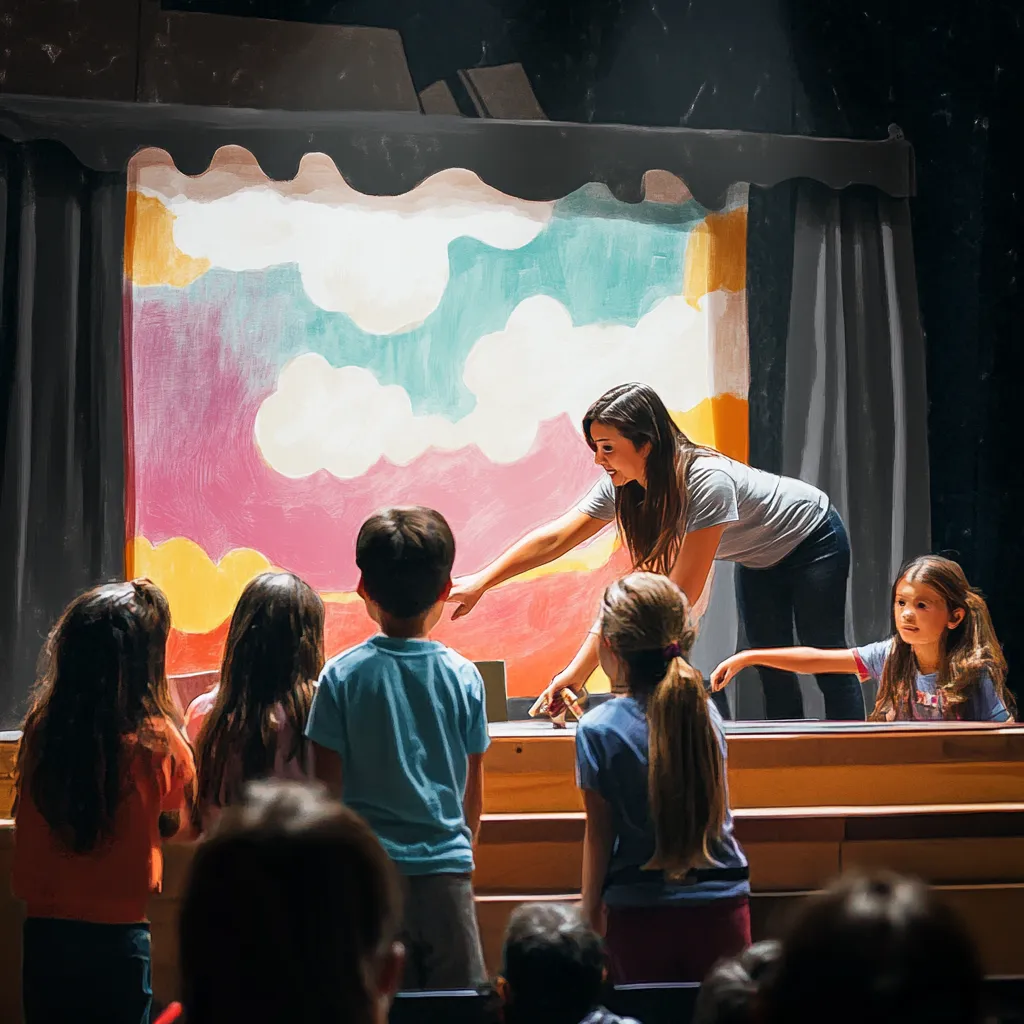
The Emotional Load: Teaching Students to Bring—and Manage—Their Whole
In educational theater, you can set all the goals, plan all the rehearsals, and block all the scenes—but none of it matters if your students aren't emotionally ready to rehearse.
And they rarely walk in ready.
They Bring Everything with Them
Our students carry a lot. Bad grades, friendship drama, stress at home, social anxiety. For many, theater is their safe space. But that doesn’t mean they leave their baggage at the door. Sometimes, rehearsal is the first time all day someone asks how they’re doing and really means it.
So we pause. We check in. We hold space.
Modeling What We Ask For
We can't expect students to "leave it all outside" if we don't model how. We show up prepared, but also present. We don’t make their problems our own, but we don’t pretend they don’t matter, either.
Twenty minutes of emotional grounding might seem like a delay, but it’s actually the work. Once they're ready, we get more done, not less.
What does that look like? Let's talk about what it means for us as educators first.
If I’m being honest, I have only recently embraced what many of my actor friends already knew. Breath matters. The first, easiest, and best way to set yourself up for a successful rehearsal is to give yourself five minutes before it starts to breathe. Find a spot where you can be alone, inhale deeply, hold it for a few seconds, and let it out through the mouth. You’ve heard it before, you’ve told your students to do it before scene work. Do you make sure you do it too?
Next, after a few deep breaths, run through your rehearsal in your head. Imagine it going perfectly. All of those benchmarks, hit. All of that blocking, perfection. Just see it, don’t judge it.
Then imagine your students in the best possible light. Remember the qualities in them that bring out the best in you. See each of them that way. At least see each of them smiling and enjoying the process.
Then go to rehearsal.
This little mini fantasy, and its ok that it is a fantasy, puts you in a centered frame of mind. The kids will feel it in you when you walk in the door. The more you model that, the more likely they will be to follow suit.
Post-COVID Social Skill Rebuilding
We're still dealing with the ripple effects of isolation. Some students missed key social growth years. They don’t always know how to collaborate or resolve conflict. Theater can teach those skills, but only if we approach it with intention.
Be clear about your rehearsal expectation, make sure you have a plan for conflicts when they arise. This is everything from calendar conflicts to dating drama. Make sure you are clear about how you're going to handle it upfront, so no one is surprised. Structure and process matter, it will allow for clear communication and better collaboration as well as shorter disruptions when those conflicts arise. And your students will take those lessons with them far past their time with you in the theater.
This Is the Job
If you’re a theater teacher wondering why your job feels heavier than it used to, it’s because it is. You’re not imagining it, but you’re not alone either. Your emotional support in educational theater isn’t a bonus. It’s fundamental.
And it’s one of the things that makes what we do so powerful.
Would you like more support? We’ve got your back. Join us at Backstage AIC.